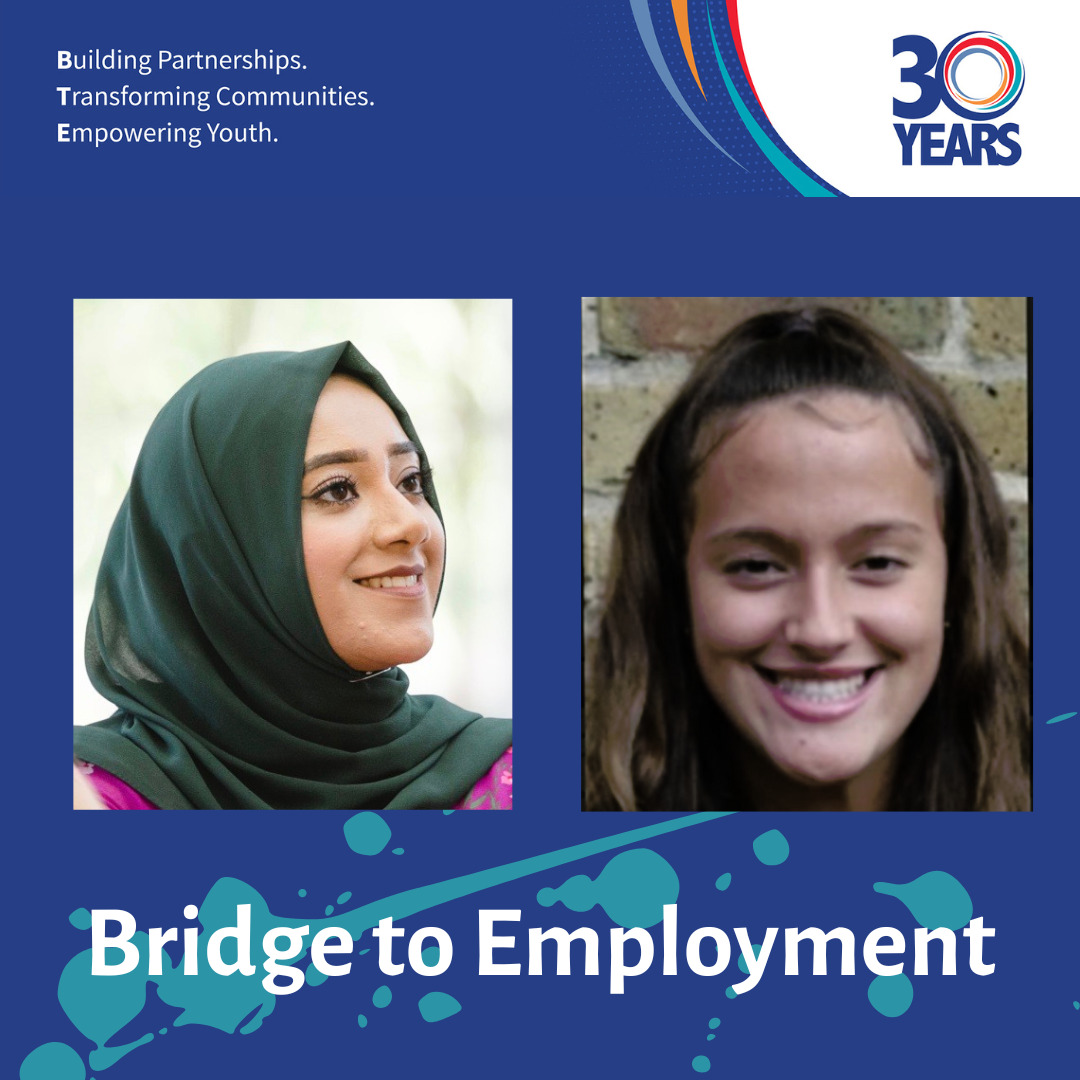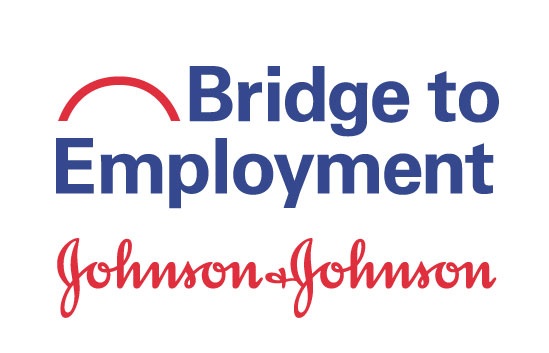Mar 04, 2022
BTE Student Stories

Apprenticeships are a growing trend for young people entering the job market. According to the U.S. Department of Labor, almost 2 million people have started new apprenticeships in the last decade, showing 70% growth since 2011. Likewise, in the U.K., over 322,000 people began new apprenticeships in the 2019/2020 year (Source).
What makes an apprenticeship special? For new workers, they offer paid employment with on-the-job learning, classroom instruction, and mentorship, which leads to a nationally recognized credential when the program is completed. For employers, apprenticeships help in workforce recruitment, with 92% of apprentices continuing employment after they complete their program.
At Bridge to Employment (BTE), we’ve heard a lot of exciting things about apprenticeships, so we wanted to learn more about how BTE and apprenticeships can fit together. To start, we interviewed two BTE U.K. participants: Aiman Mahmood, a BTE 2021 graduate, and Ellie Millwood-Roberts, a BTE 2020 graduate. Both enrolled in a dual degree-apprenticeship program with Janssen (Johnson & Johnson’s international pharmaceutical company).
Bridge to Employment played an important role in Aiman’s and Ellie’s success in apprenticing with Janssen. “I think it was one of the biggest factors,” Aiman said. “I knew what company I was getting into. I had support from mentors.”
“I got a lot of contacts from BTE,” Ellie said, “I found the apprenticeship I’m currently on through BTE. They also teach you a lot about CV and cover letter writing in BTE. The contacts and the preparation really helped.”
“With the Bridge to Employment program, I was already familiar with Janssen, and I thought it would be really silly for me to not take the opportunity,” Aiman said.
For both Aiman and Ellie, Janssen covers the cost of their business and marketing degrees, which span about three and a half years, the same length as the apprenticeship. They each work four days a week and have the fifth day reserved for studying. Aiman’s role is a marketing apprentice in Cell and Gene Therapy, dealing with oncology. Ellie works in the Learning and Development department. Over the course of the apprenticeship, they may also have the opportunity to rotate to different areas, such as the legal affairs department or a different therapy team, in order to gain a better sense of the scope of Janssen’s work. “It is different for every company,” Ellie noted, so for students looking for apprenticeships she recommends establishing the expectations for work and study upfront.
Both apprentices feel they’ve significantly strengthened their soft skills, especially communication and time management. “Email writing is different than texting,” Ellie said, “At the beginning, we did some practice emails to learn how to respond to certain emails, so that was quite a helpful activity.”
“I’ve learned to collaborate with other groups, and how to give presentations,” Aiman shared.
Both also noted that what they learn in school applies to the work they’re doing. “Our studies are related to business – dynamic capabilities, business strategy – and these things link really well with what we do in our work. It helps us apply new ideas and new perspectives,” Aiman said.
“Everything is applied to the business you’re working for, which is really helpful,” Ellie said.
While the dual program can be a lot of work, Aiman and Ellie feel their apprenticeships have been a great way to get their foot in the door. In addition to gaining work experience and seeing how their studies apply to their work, apprentices have the opportunity to start networking. Aiman and Ellie are both working on teams and making real contributions to specific projects. Ellie has the opportunity to talk with Janssen’s researchers about their work, while Aiman meets with external agencies and medical teams. Additionally, Aiman added, “You’re able to join groups like the Women’s Leadership Inclusion,” connecting with others who can support their careers.
The apprenticeship gives Aiman an opportunity to explore. “I’d definitely like to have a long-term career in Janssen,” Aiman said. “And I think it’s more than just going up the ranks, I think it’s definitely developing as a person and finding that place where I fit in.”
“I am hoping to stay on in Janssen,” Ellie said. “I’m not sure what role because I’m still figuring out what areas I like. I feel like I’ve got a good starting point.”
In addition to the experience, Aiman and Ellie both note the financial benefits of an apprenticeship over the traditional university route. Not only do they receive a salary for their work, but they are also free of student debt through their apprenticeship program.
“The apprenticeship approach isn’t going to work for everyone,” Ellie said, “But I definitely recommend it. It’s just a really good transition from school to work.”
“I definitely recommend it,” Aiman said, “It’s just a better way of launching yourself into society. In university, you don’t have that form of socialization with the working world. It’s a challenge, it’s not always easy sailing, but with the degree-apprenticeship, it’s about exposing yourself – this is the best opportunity to make mistakes and learn from them. I see it as the way of the future.”
*
Other students in the U.K. can pursue apprenticeship opportunities through FindApprenticeship.Service.gov.uk. U.S. students can learn more about apprenticeship opportunities through https://www.apprenticeship.gov/ .
Many thanks to Aiman and Ellie for taking the time to share their views with BTE.
